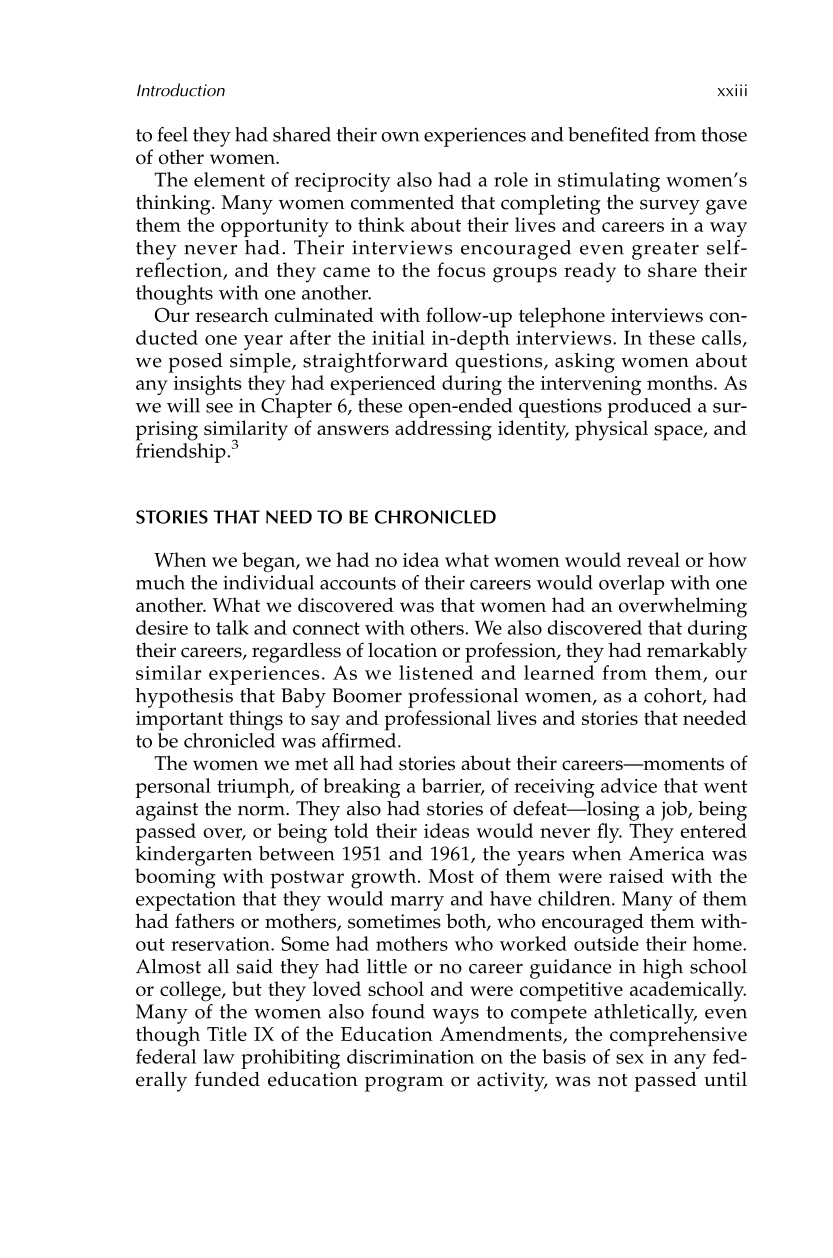to feel they had shared their own experiences and benefited from those
of other women.
The element of reciprocity also had a role in stimulating women’s
thinking. Many women commented that completing the survey gave
them the opportunity to think about their lives and careers in a way
they never had. Their interviews encouraged even greater self-
reflection, and they came to the focus groups ready to share their
thoughts with one another.
Our research culminated with follow-up telephone interviews con-
ducted one year after the initial in-depth interviews. In these calls,
we posed simple, straightforward questions, asking women about
any insights they had experienced during the intervening months. As
we will see in Chapter 6, these open-ended questions produced a sur-
prising similarity of answers addressing identity, physical space, and
friendship.3
STORIES THAT NEED TO BE CHRONICLED
When we began, we had no idea what women would reveal or how
much the individual accounts of their careers would overlap with one
another. What we discovered was that women had an overwhelming
desire to talk and connect with others. We also discovered that during
their careers, regardless of location or profession, they had remarkably
similar experiences. As we listened and learned from them, our
hypothesis that Baby Boomer professional women, as a cohort, had
important things to say and professional lives and stories that needed
to be chronicled was affirmed.
The women we met all had stories about their careers—moments of
personal triumph, of breaking a barrier, of receiving advice that went
against the norm. They also had stories of defeat—losing a job, being
passed over, or being told their ideas would never fly. They entered
kindergarten between 1951 and 1961, the years when America was
booming with postwar growth. Most of them were raised with the
expectation that they would marry and have children. Many of them
had fathers or mothers, sometimes both, who encouraged them with-
out reservation. Some had mothers who worked outside their home.
Almost all said they had little or no career guidance in high school
or college, but they loved school and were competitive academically.
Many of the women also found ways to compete athletically, even
though Title IX of the Education Amendments, the comprehensive
federal law prohibiting discrimination on the basis of sex in any fed-
erally funded education program or activity, was not passed until
Introduction xxiii

























































































































































































